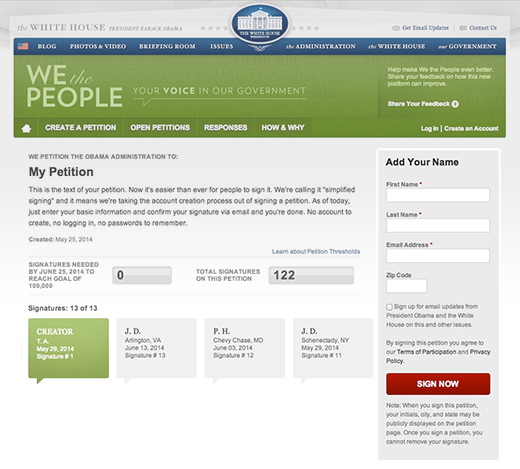Le Monde: “Du 23 au 27 novembre, à Strasbourg, les participants au Forum mondial pour la démocratie examineront des initiatives de démocratie participative à l’oeuvre sur tous les continents. En voici quelques exemples. ( Lire aussi l’entretien : “Internet renforce le pouvoir de la société civile”)
- EN FRANCE, LES ÉLECTEURS PASSENT À L’ÈRE NUMÉRIQUE
Depuis trois ans, les initiatives françaises de démocratie 2.0 se multiplient, avec pour objectif de stimuler la participation citoyenne aux instances démocratiques, qu’elles soient locales ou nationales. Dans la perspective des élections municipales de mars 2014, Questionnezvoselus.org propose ainsi aux internautes d’interroger les candidats à la mairie des 39 villes de France métropolitaine de plus de 100 000 habitants. Objectif ? Etablir la confiance entre les citoyens et leurs élus grâce à davantage de transparence, d’autonomisation et de responsabilité. La démarche rappelle celle de Voxe.org : lors de l’élection présidentielle de 2012, ce comparateur neutre et indépendant des programmes des candidats a enregistré un million de connexions. En complément, Laboxdesmunicipales.com propose des outils d’aide au vote, tandis que Candidat-et-citoyens.fr offre à ceux qui se présentent la possibilité d’associer des citoyens à la construction de leur programme.
Aux adeptes de la transparence, le collectif Democratieouverte.org propose d’interpeller les élus afin qu’ils affichent ouvertement leurs pratiques, et Regardscitoyens.org offre « un accès simplifié au fonctionnement de nos institutions démocratiques à partir des informations publiques »….
Informer, débattre et donner le pouvoir d’agir », tel est le slogan de Puzzled by Policy (PBP, « perplexe quant à la politique »), une plate-forme Internet lancée en octobre 2010 afin d’aider chacun à mieux comprendre les décisions politiques prises au niveau européen et à améliorer ainsi la qualité du débat public….
- A PORTO ALEGRE, UN WIKI RELIE HABITANTS ET ÉDILES
Cartographier le territoire et identifier les problèmes que rencontrent les habitants de la ville en utilisant un système « wiki » (c’est-à-dire un site Internet qui s’enrichit des contributions des internautes), telle est la vocation de Porto Alegre.cc.
Conçu pour donner de la visibilité aux causes défendues par les habitants, ce site s’inscrit dans le cadre de la plate-forme « wikicity » (Wikicidade.cc). Un concept dondé sur la méthode de l’intelligence collective, qui s’articule autour de quatre axes : culture de la citoyenneté, éthique de l’attention, responsabilité partagée et engagement civique….
Depuis mars 2012, la Constitution finlandaise laisse à tout citoyen ayant atteint la majorité la possibilité d’inscrire des propositions de loi sur l’agenda parlementaire. Ces dernières sont examinées par les élus à condition de recevoir le soutien de 50 000 autres Finlandais (soit 1 % de la population).
Afin d’optimiser l’usage et l’impact de ce dispositif de participation citoyenne, l’ONG Open Ministry a lancé en octobre 2012 une plate-forme facilitant l’implication de tout un chacun. Participation en ligne, ateliers de travail ouverts ou tables rondes sont autant de techniques utilisées à cette fin….
- AUX ETATS-UNIS, LA FINANCE PARTICIPATIVE GAGNE LES PROJETS PUBLICS
Citizinvestor.com propose aux citoyens américains de participer au financement d’infrastructures publiques. « L’administration n’a jamais assez d’argent pour financer tous les projets et services dont rêvent les citoyens », observent Tony De Sisto et Jordan Tyler Raynor, les cofondateurs du projet, conscients des choix difficiles opérés lors de l’allocation des budgets municipaux et de l’envie des habitants d’avoir leur voix dans ce choix….”


